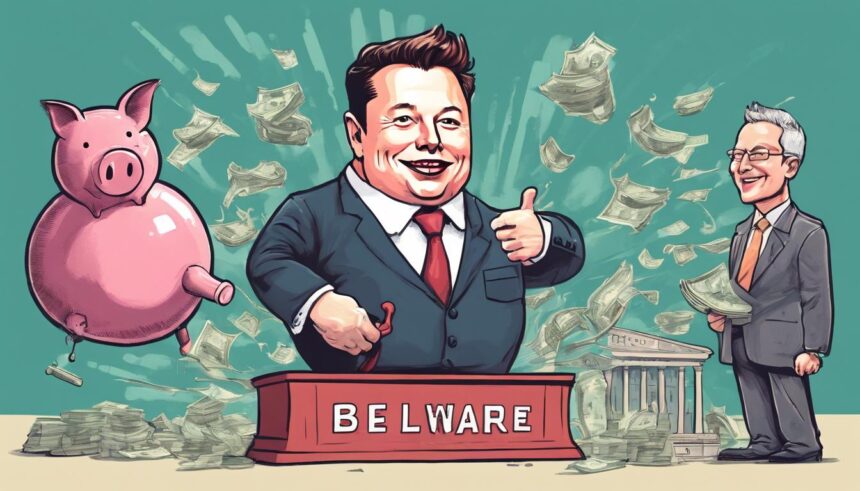Citizens for Judicial Fairness embarks on an advertising blitz to challenge what they deem an unjust decision in the Elon Musk and Tesla legal saga, targeting the potential for an unprecedented legal fee in Delaware’s Chancery Court.
In a bold move that has captured the attention of the nation, Citizens for Judicial Fairness, a judicial advocacy group, has unveiled a striking advertising campaign to spotlight what they perceive as an impending unjust decision in the high-profile legal battle between Elon Musk and Tesla. Amidst the legal wrangling, a staggering $6 billion demand for attorney fees has emerged, a figure so colossal it eclipses the gross domestic product of several small countries.
The campaign, aptly named “Delaware Fat Cats,” launched with a feature on the New York Post and is set to span across an array of media platforms including broadcast, cable, streaming, and social media. At the heart of this controversy is Delaware Chancellor Kathaleen McCormick, whose court is on the verge of possibly approving an unprecedented legal fee reimbursement to the attorneys who successfully contested Elon Musk’s considerable pay package with Tesla.
This potential payout, amounting to a jaw-dropping $300,000 per hour for legal services rendered, is not only slated to be the largest in history but also highlights a contentious issue within the Delaware Chancery Court’s practices. Critics argue that the court has a track record of sanctioning excessive legal fees and expenses, a point underscored by previous cases such as the contentious TransPerfect case. There, the court sanctioned a forced sale of the company, during which the court-appointed custodian billed nearly $4 million, including for undisclosed expenses.
The “Delaware Fat Cats” advertisement sharply critiques this practice, weaving in concerns over perceived corruption and potential bias within the legal system. It notably questions Chancellor McCormick’s connections to the Delaware legal community, showcasing a public statement where she acknowledged a camaraderie with attorneys, saying, “We’ve always had each other’s back, we’ve always gone out for drinks after arguments and maintained this level of civility.” This, according to the ad, might suggest a too-cosy relationship that could influence judicial decisions.
The campaign by Citizens for Judicial Fairness has ignited a broader debate on judicial fairness and the ethics of legal fee entitlements, especially in cases involving massive sums of money and high-profile figures such as Elon Musk. The controversy delves into the very fabric of legal ethics, questioning the balance between adequate compensation for legal services and the potential for exorbitant demands disconnected from the public’s sense of justice.
As the legal community and the public at large await Chancellor McCormick’s ruling, the “Delaware Fat Cats” campaign serves as a vivid reminder of the ongoing discussions around judicial accountability, transparency, and the critical need for common sense in the face of seemingly outlandish legal fee disputes. It underscores the complex interplay between law, ethics, and public perception, marking a significant moment in the broader narrative of judicial reform and fairness.





